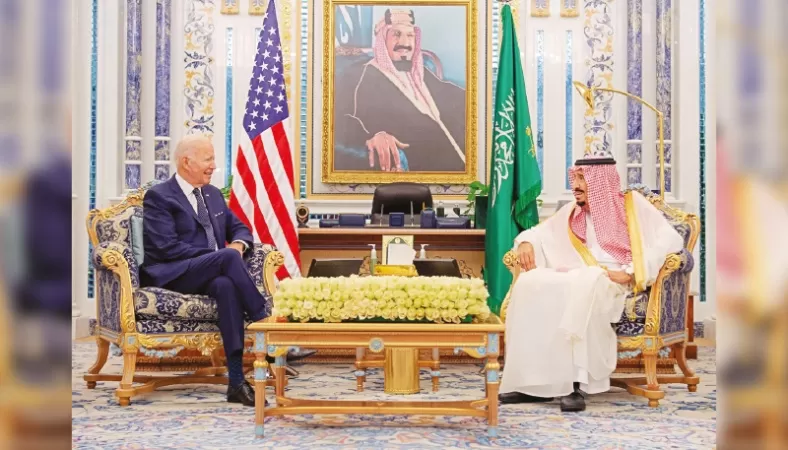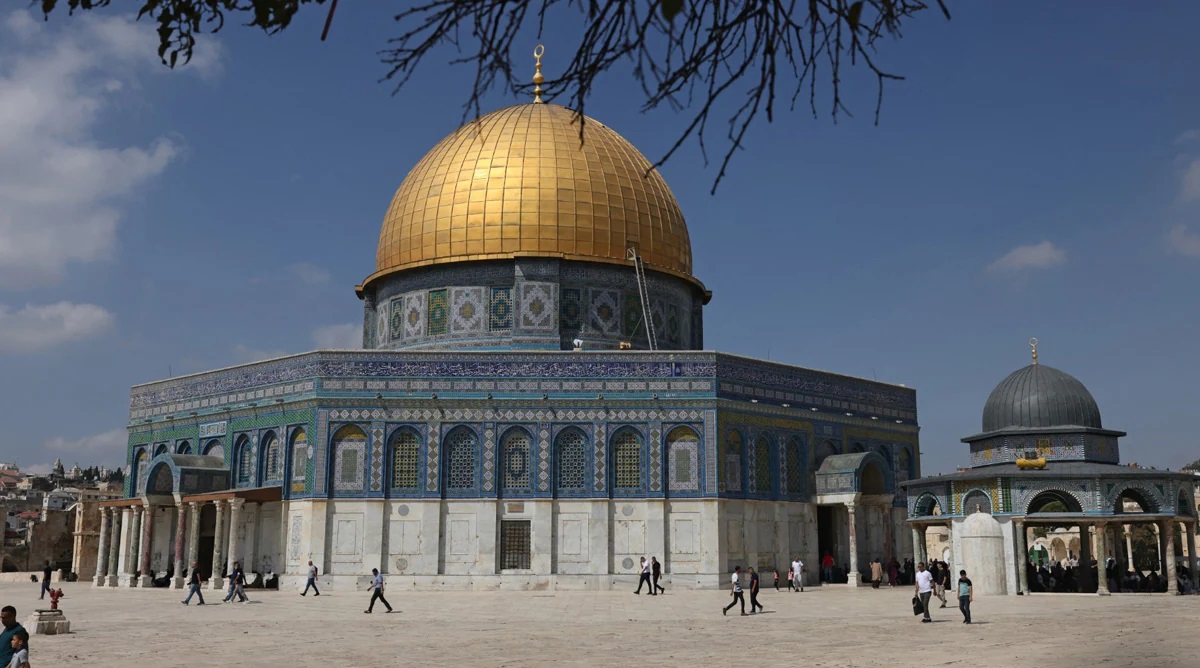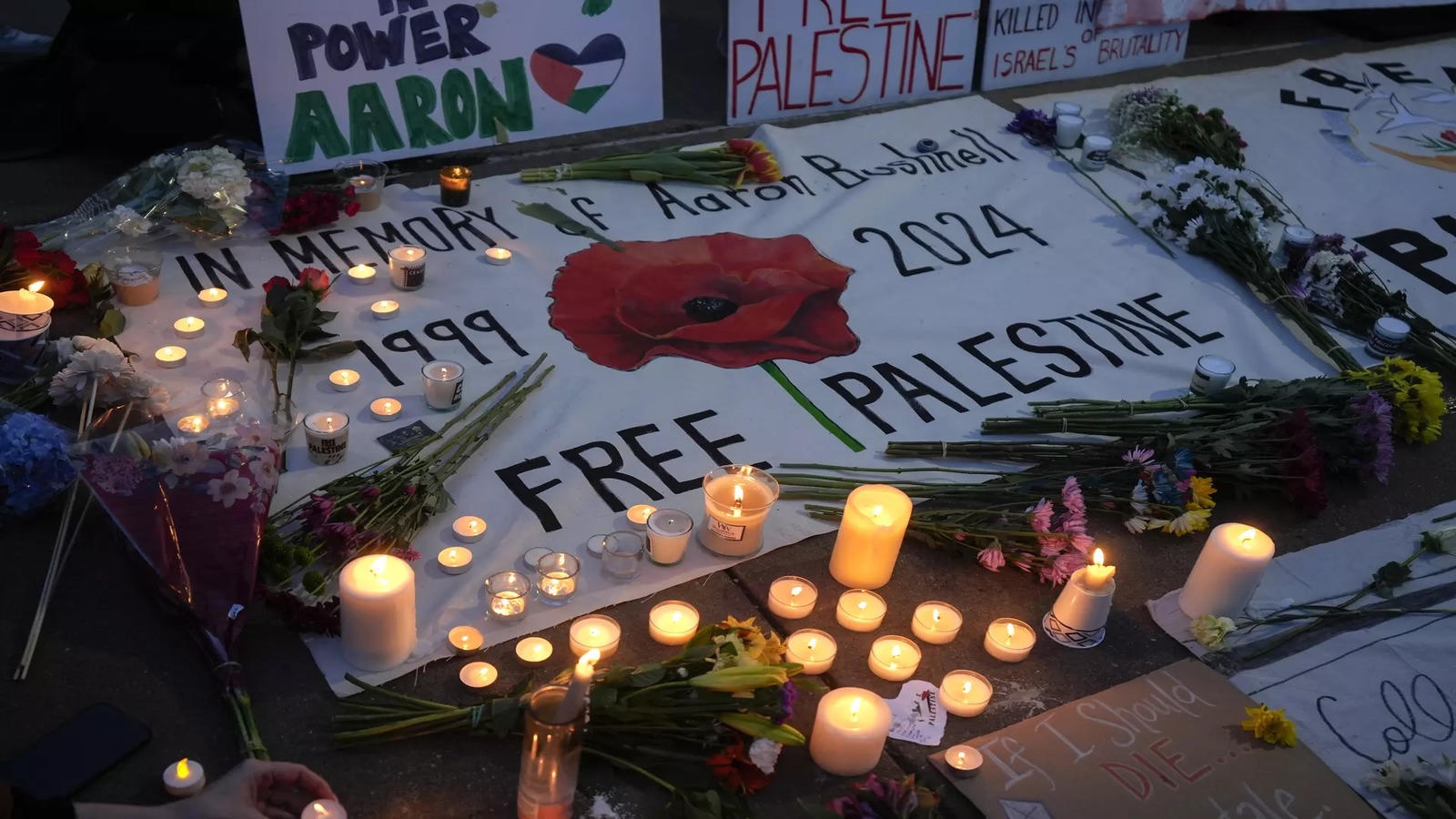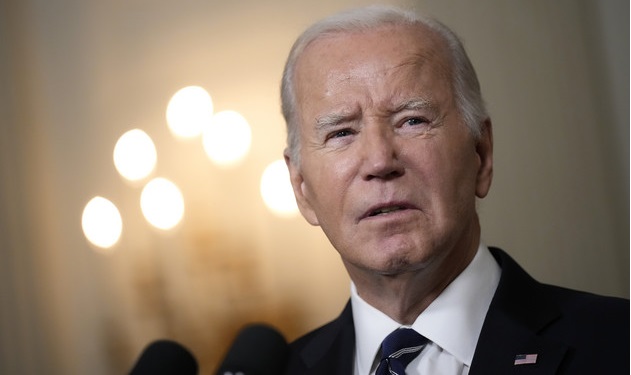US President Joe Biden held a swift series of meetings with the leaders of Iraq, Egypt and the United Arab Emirates on Saturday as he sought to forge regional missile and defence capabilities at a wider Arab summit in Saudi Arabia.
Biden, who began his first trip to the Middle East as president with a visit to Israel, is seeking to use the gathering in Jeddah to integrate Israel as part of a new axis largely driven by shared concerns over Iran.
“We believe there’s great value in including as many of the capabilities in this region as possible and certainly Israel has significant air and missile defence capabilities, as they need to. But we’re having these discussion bilaterally with these nations,” a senior administration official told reporters.
Biden has focused on the planned summit with six Gulf states and Egypt, Jordan and Iraq while downplaying his meeting with Saudi Crown Prince Mohammed bin Salman. That encounter drew criticism in the United States over human rights abuses.
Biden had promised to make Saudi Arabia a “pariah” on the global stage over the 2018 murder of journalist Jamal Khashoggi by Saudi agents, but ultimately decided U.S. interests dictated a recalibration, not a rupture, in relations with the world’s top oil exporter and Arab powerhouse.
The U.S. leader said he had raised the Khashoggi killing at the top of his meeting with the Saudi crown prince on Friday and that to be silent on the issue of human rights is “inconsistent with who we are and who I am”. read more
The crown prince told Biden that Saudi Arabia has acted to prevent a repeat of mistakes like the killing of Khashoggi but that the United States had made similar mistakes, including in Iraq, a Saudi official said. read more
The official, in a statement sent to Reuters about Friday’s conversation between the two leaders, said the kingdom’s de facto ruler said that trying to impose certain values by force on other countries could backfire.
Biden needs the help of OPEC giant Saudi Arabia at a time of high crude prices and other problems related to the Russia-Ukraine conflict and as he encourages efforts to end the Yemen war, where a temporary truce is in place. Washington also wants to curb Iran’s sway in the region and China’s global influence.
The U.S. president held a series of bilateral talks before taking part in the wider summit. U.S. national security adviser Jake Sullivan said on Friday that the president would “lay out clearly” his vision and strategy for America’s engagement in the Middle East.
FOOD SECURITY
In his meeting with Biden, Egyptian President Abdel Fattah al-Sisi discussed food security and disruptions to energy supplies, the Egyptian presidency said.
Relations between Egypt and the United States were uneasy in the first months of the Biden presidency amid differences on human rights, before Egypt’s efforts to broker a ceasefire in Gaza in May 2021 prompted re-engagement.
Another senior administration official said Biden would announce that the United States has committed $1 billion in new near and long term food security assistance for the Middle East and North Africa, and that Gulf states would commit $3 billion over the next two years in projects that align with U.S. partnerships in global infrastructure and investment.
Gulf states, which have refused to side with the West against Russia in the Ukraine conflict, are in turn seeking a concrete commitment from the United States to strategic ties that have been strained over perceived U.S. disengagement from the region.
Riyadh and Abu Dhabi have been frustrated by U.S. conditions on arms sales and for being excluded from indirect U.S.-Iran talks aimed at reviving a 2015 nuclear pact that they see as flawed for not tackling regional concerns about Tehran’s missile programme and behaviour.
Israel, which shares their concerns over Iran, encouraged Biden’s trip to the kingdom, hoping it would foster a warming between Saudi Arabia and Israel as part of a wider Arab rapprochement after the UAE and Bahrain forged ties with Israel in U.S.-brokered pacts that received Riyadh’s blessings.
In a sign of progress under what Biden described as a groundbreaking process, Saudi Arabia said on Friday it would open its airspace to all air carriers, paving the way for more overflights to and from Israel.
A plan to connect air defence systems could be a hard sell for Arab states that do not have ties with Israel and balk at being part of an alliance seen as against Iran, which has built a strong network of proxies around the region including in Iraq, Lebanon and Yemen.















